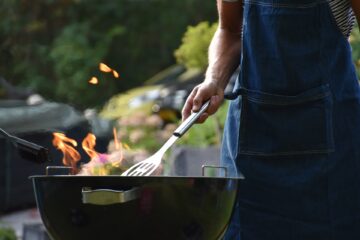Brisket is a popular cut of meat that is often used in barbecuing, smoking, and slow cooking. It is a delicious and tender cut of beef that is loved by many, but have you ever wondered how much weight it loses when cooked? In this article, we will explore the science behind brisket weight loss and provide tips on how to minimize it.
What is Brisket?
Brisket is a tough, flavorful cut of beef that comes from the chest of the cow. It’s often used for slow-cooking methods like smoking, braising, or roasting to break down the meat’s collagen and connective tissues, making it tender and juicy. It’s a popular choice for barbecue and other hearty dishes, prized for its rich flavor and versatility in cooking. Brisket is also a relatively affordable cut of beef, making it a go-to for feeding large groups or families.
Understanding Brisket Weight Loss
Brisket is a cut of beef that is well-known for its delicious taste and tender texture when cooked correctly. It is a tough cut of meat that requires slow cooking at a low temperature to break down the connective tissues and make it tender. As the brisket cooks, it loses moisture and fat, which results in a decrease in weight. The amount of weight lost during cooking can vary based on several factors, including the size of the brisket, the cooking method, and the cooking time.
Understanding how much weight brisket can lose during cooking is essential for ensuring that you purchase the right amount of meat and prepare it correctly. It is also important for determining the nutritional content of the cooked meat. In this article, we will explore the factors that affect brisket weight loss during cooking and provide tips for minimizing weight loss.
How Much Does Brisket Lose When Cooked?
When cooking a brisket, you can expect it to lose anywhere from 30% to 40% of its weight. This weight loss occurs due to a combination of factors, including moisture loss, fat rendering, and evaporation. The exact amount of weight that a brisket will lose depends on several factors, including the quality of the meat, the cooking method, and the cooking time.
Typically, a brisket will lose more weight when cooked for a longer period of time or at a higher temperature. This is because the longer cooking time and higher temperature will cause more moisture to evaporate from the meat. Additionally, brisket that is higher in fat content will lose more weight when cooked, as the fat will render and drip away from the meat.
It is important to note that while a significant amount of weight loss may occur during the cooking process, this does not necessarily mean that the brisket will be dry or tough. Proper cooking techniques, such as using a meat thermometer to ensure that the internal temperature of the meat reaches the appropriate level, can help to ensure that the brisket remains moist and tender despite the weight loss.
Tips for Minimizing Brisket Weight Loss
When it comes to minimizing brisket weight loss, there are several tips to consider. First, choose a high-quality brisket with a good amount of marbling, as this can help keep the meat moist during cooking. It’s also important to let the brisket rest after cooking, as this allows the juices to redistribute and can help prevent excessive moisture loss.
Another tip is to cook the brisket low and slow, which allows the meat to cook evenly and can help prevent moisture loss. Wrapping the brisket in foil or butcher paper during cooking can also help retain moisture, although this can also affect the texture of the bark on the outside of the brisket.
It’s also important to slice the brisket properly, against the grain, as this can help prevent moisture loss during serving. And finally, be sure to store any leftover brisket properly, in an airtight container in the refrigerator or freezer, to prevent further moisture loss.
By following these tips, you can help minimize brisket weight loss and ensure a delicious and moist end result.
Conclusion
In conclusion, brisket is a popular and delicious cut of meat that can lose a significant amount of weight during the cooking process. However, there are steps that can be taken to minimize this weight loss and ensure a juicier, more flavorful end result. Properly trimming the brisket, using a meat thermometer to ensure it is cooked to the appropriate temperature, and allowing it to rest before slicing can all contribute to a better outcome. It’s important to keep in mind that some weight loss is inevitable, but with these tips, you can still enjoy a mouthwatering and satisfying brisket.




